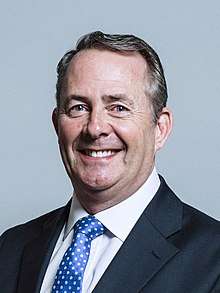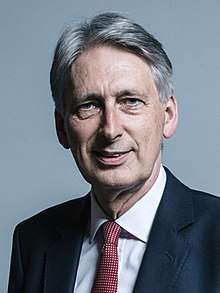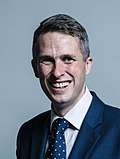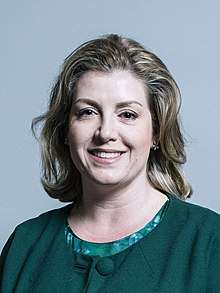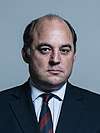Secretary of State for Defence
The Secretary of State for Defence, also referred to as the Defence Secretary, is a senior Minister of the Crown within the Government of the United Kingdom, and head of the Ministry of Defence (MoD). The office forms part of the British Cabinet.
| Her Majesty's Principal Secretary of State for Defence | |
|---|---|
.svg.png) Royal Arms of Her Majesty's Government | |
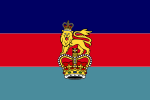 Flag of the Defence Secretary | |
| Ministry of Defence | |
| Style | Defence Secretary (informal) The Right Honourable (UK and the Commonwealth) |
| Status | Minister of the Crown |
| Member of | Cabinet Privy Council National Security Council Defence Council Admiralty Board Army Board Air Force Board |
| Reports to | The Prime Minister |
| Seat | Westminster |
| Appointer | The Crown on advice of the Prime Minister |
| Term length | At Her Majesty's Pleasure |
| Formation | 1 April 1964 |
| First holder | Peter Thorneycroft |
| Deputy | Minister of State for the Armed Forces |
| Website | www |
The current Secretary of State for Defence is Ben Wallace, MP. since his appointment by Prime Minister Boris Johnson, in July 2019[1].
Responsibilities
Corresponding to what is generally known as a defence minister in many other countries, the Defence Secretary's remit includes:
History
The post was created in 1964 as successor to the posts of Minister for Coordination of Defence (1936–1940) and Ministry of Defence (1947–64). It replaced the positions of First Lord of the Admiralty, Secretary of State for War, and Secretary of State for Air, as the Admiralty, War Office and Air Ministry were merged into the Ministry of Defence (the Secretary of State for War had already ceased to be a cabinet position in 1946, with the creation of the cabinet-level Minister of Defence).
List of officeholders
Ministers for Co-ordination of Defence (1936–1940)
The position of Minister for Co-ordination of Defence was a British Cabinet-level position established in 1936 to oversee and co-ordinate the rearmament of Britain's defences.
The position was established by the Prime Minister, Stanley Baldwin in response to criticism that Britain's armed forces were understrength compared to those of Nazi Germany. This campaign had been led by Winston Churchill and many expected him to be appointed as the new minister, though nearly every other senior figure in the National Government was also speculated upon by politicians and commentators. Despite this, Baldwin's choice of the Attorney General Sir Thomas Inskip provoked widespread astonishment. A famous comment made in response to Inskip's appointment was "This is the most cynical appointment since Caligula made his horse a consul".[3] The appointment is now regarded as a sign of caution by Baldwin who did not wish to appoint someone like Churchill who would have been interpreted by foreign powers as a sign of the United Kingdom preparing for war, as well as a desire to avoid taking on board a controversial and radical minister.
In 1939 Inskip was succeeded by First Sea Lord Lord Chatfield. When the Second World War broke out, the new Prime Minister Neville Chamberlain formed a small War Cabinet and it was expected that Chatfield would serve as a spokesperson for the three service ministers, the Secretary of State for War, the First Lord of the Admiralty and the Secretary of State for Air; however, political considerations resulted in all three posts being included in the Cabinet, and Chatfield's role proved increasingly redundant. In April 1940 the position was formally wound up and the functions transferred to other Ministers.
| Portrait | Name (Birth–Death) |
Term of office | Party | Ministry | |||
|---|---|---|---|---|---|---|---|
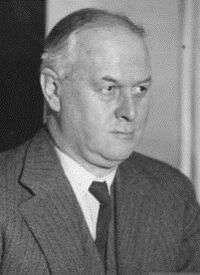 |
The Right Honourable Sir Thomas Inskip CBE KC MP for Fareham (1876–1947) |
13 March 1936 |
29 January 1939 |
Conservative | National III (Con.–N.Lab.–Lib.N.) | ||
| National IV (Con.–N.Lab.–Lib.N.) | |||||||
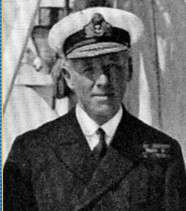 |
The Right Honourable Ernle Chatfield 1st Baron Chatfield GCB OM KCMG CVO PC (1873–1967) |
29 January 1939 |
3 April 1940 |
Independent (National) | |||
| Chamberlain War (Con.–N.Lab.–Lib.N.) | |||||||
Ministers of Defence (1940–1964)
The post of Minister of Defence was responsible for co-ordination of defence and security from its creation in 1940 until its abolition in 1964. The post was a Cabinet level post and generally ranked above the three service ministers, some of whom, however, continued to also serve in Cabinet.
On his appointment as Prime Minister in May 1940, Winston Churchill created for himself the new post of Minister of Defence. The post was created in response to previous criticism that there had been no clear single minister in charge of the prosecution of World War II. In 1946, the post became the only cabinet-level post representing the military, with the three service ministers – the Secretary of State for War, the First Lord of the Admiralty, and the Secretary of State for Air, now formally subordinated to the Minister of Defence.
Secretaries of State for Defence (1964–present)
The post of Secretary of State for Defence was created on 1 April 1964. The former Cabinet positions of First Lord of the Admiralty, Secretary of State for War and Secretary of State for Air (responsible for the Royal Navy, British Army and Royal Air Force respectively) were incorporated into it and the offices of the Admiralty, War Office and the Air Ministry were abolished and their functions transferred to an expanded Ministry of Defence.
References
- "Ben Wallace Named New Defence Secretary". Forces Network. 24 July 2019. Retrieved 24 July 2019.
- https://www.gov.uk/government/ministers/secretary-of-state-for-defence
- This quote has been made on many occasions and the original source is unclear. The highly influential polemic Guilty Men (whose relevant chapter is entitled "Caligula's Horse") attributes it to a "great statesman" (page 74), whom some have surmised was Churchill. However Stewart, Graham Burying Caesar: Churchill, Chamberlain and the Battle for the Tory Party (London; Phoenix, 1999) (ISBN 0-7538-1060-3), page 487 attributes the originator of the quote to Churchill's non-politician friend Professor Frederick Lindemann.
- "Mr Peter Thorneycroft". Hansard 1803–2005. UK Parliament. Retrieved 2 November 2017.
- "Lord Healey". UK Parliament. Retrieved 2 November 2017.
- "Lord Gilmour of Craigmillar". UK Parliament. Retrieved 2 November 2017.
- "Lord Mason of Barnsley". UK Parliament. Retrieved 2 November 2017.
- "Lord Mulley". UK Parliament. Retrieved 2 November 2017.
- "Lord Pym". UK Parliament. Retrieved 2 November 2017.
- "Rt Hon Sir John Nott". UK Parliament. Retrieved 2 November 2017.
- "Lord Heseltine". UK Parliament. Retrieved 2 November 2017.
- "Rt Hon Sir George Younger". UK Parliament. Retrieved 2 November 2017.
- George Jones (27 January 2003). "Thatcher's ally George Younger dies at 71". The Telegraph. Retrieved 3 November 2017.
- "Lord King of Bridgwater". UK Parliament. Retrieved 2 November 2017.
- "Rt Hon Sir Malcolm Rifkind QC". UK Parliament. Retrieved 2 November 2017.
- "Rt Hon Michael Portillo". UK Parliament. Retrieved 2 November 2017.
- "Lord Robertson of Port Ellen". UK Parliament. Retrieved 2 November 2017.
- "Mr Geoffrey Hoon". UK Parliament. Retrieved 2 November 2017.
- "Lord Reid of Cardowan". UK Parliament. Retrieved 2 November 2017.
- "Lord Browne of Ladyton". UK Parliament. Retrieved 2 November 2017.
- "Lord Hutton of Furness". UK Parliament. Retrieved 2 November 2017.
- "Rt Hon Bob Ainsworth". UK Parliament. Retrieved 2 November 2017.
- "Rt Hon Dr Liam Fox MP". UK Parliament. Retrieved 2 November 2017.
- "Who's who in the coalition cabinet". The Guardian. 13 May 2010. Retrieved 3 November 2017.
- "Rt Hon Philip Hammond MP". UK Parliament. Retrieved 2 November 2017.
- "Liam Fox quits as defence secretary". BBC News. 14 October 2011. Retrieved 3 November 2017.
- "Rt Hon Sir Michael Fallon MP". UK Parliament. Retrieved 2 November 2017.
- "Reshuffle at-a-glance: In, out and moved about". BBC News. 15 July 2014. Retrieved 3 November 2017.
- "Rt Hon Gavin Williamson MP". UK Parliament. Retrieved 2 November 2017.
- "Gavin Williamson replaces Michael Fallon as defence secretary". BBC News. 2 November 2017. Retrieved 2 November 2017.
- "Gavin Williamson sacked over Huawei leak". 1 May 2019. Retrieved 2 May 2019.
External links
| Wikimedia Commons has media related to Secretaries of State for Defence (UK). |

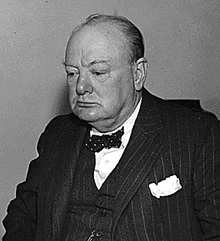


.jpg)
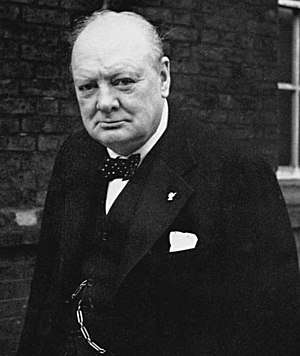
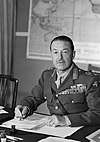
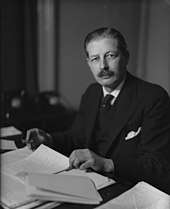


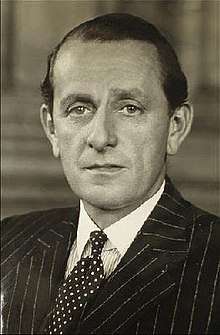
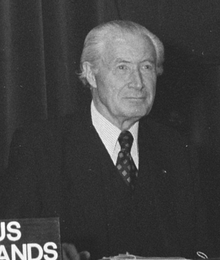
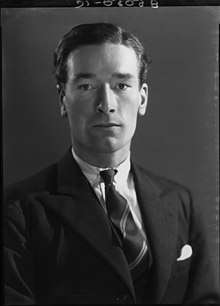
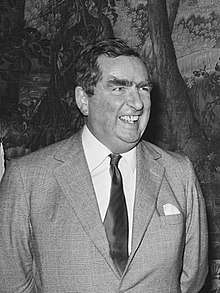
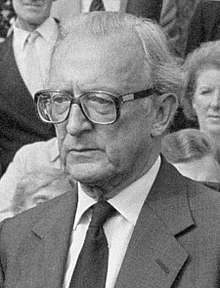

.jpg)
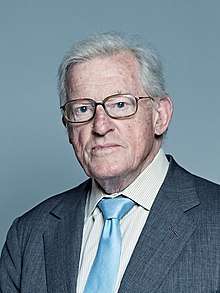
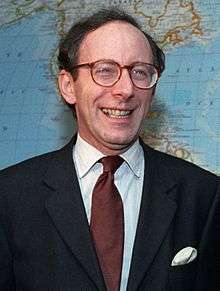
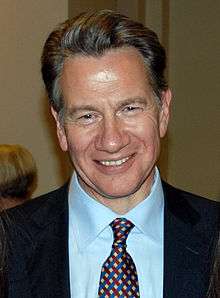
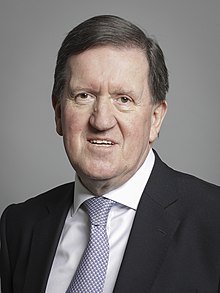
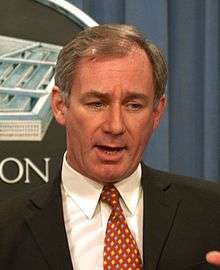
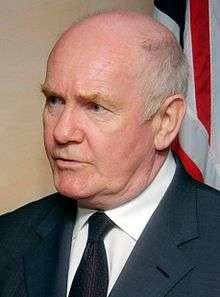

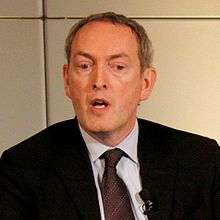
.jpg)
